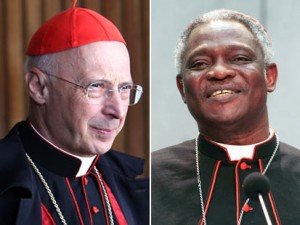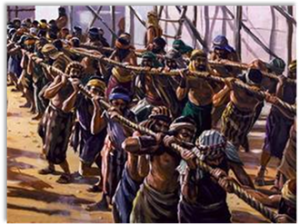In less than a month, Jews around the world will set down for a special meal known as a Passover Seder. Begun more than 3000 years ago, as the Jewish people prepared to leave Egypt, the Seder is one of history’s most ancient continuous religious rituals.
Its story and symbolism have influenced Christianity as well. Indeed, many Christians will also sit down for a seder, either in church or in their homes, seeking to experience what Jesus and the apostles did.
To assist both searching Jews and interested Christians, I’m going to devote several artices to uncovering the deep symbolism, richness and contemporary message of the Passover Seder.
Doing so will not only teach about an ancient Jewish ritual, but it also provides a way to explore the meaning and origins of Christian doctrine, and the way Judaism shaped Christianity in its early days.
What is Passover?
Passover celebrates the God’s gift of freedom. It begins with a gathering, usually at someone’s home, in which the story of the Israelite exodus from Egypt is retold.
The order and protocol of the this gathering is prescribed in detail. It begins with a washing of the hands, continues with cups of wines and a festive meal, and concludes with song.
Each of the 15 steps of this ceremony will be discussed during the course of our articles. Each one is ripe with symbolism and contemporary relevance for Christians and Jews.
How Does Passover Compare With Easter?
The similarities abound.
1. Both take place in the Spring: Easter has no fixed date, but as Dr. Ismar Schorsch put it, “the first council of Nicaea in 325 determined that Easter should always fall on the first Sunday after the first full moon following the vernal equinox. In consequence, Easter remained proximate to the full moon, which coincided with the start of Passover on the fifteenth of Nisan.” In other words, both holidays take place around the first full moon of Spring.
2. Both emphasize hope: Spring is a time of renewal and rebirth. In Judaism, Pasover celebrates the renewal of the Jewish people after 400 years of slavery. In Christianity, Easter celebrates the resurrection–the renewal of life–of Jesus.
3. Both holidays shape the foundations of their religions: In Judaism, recalling the Exodus of Egypt is part daily prayer, shaping our understanding of God’s role in history. For many Catholics and Protestants, the weekly sacrament of communion reenacts the last supper and transforms God’s saving grace into a living truth.
For all their similarities, Passover and Easter do diverge in many places. These differences, and their further similarities, will be explored over the next month. My hope and prayer is that we will be enriched through the wisdom and traditions of each other.
To receive Rabbi Moffic’s weekly digest of Jewish wisdom, click here.


